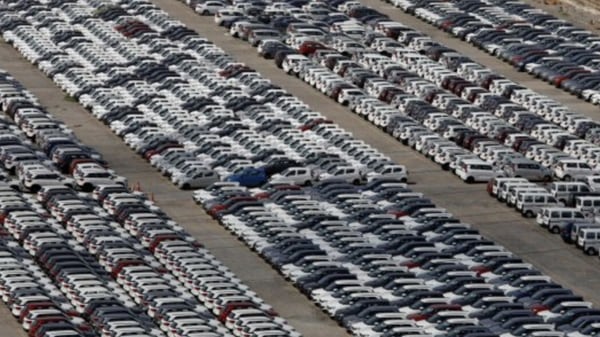Automobile sales acceleration may be an uphill task after festive cheer


Federation of Automobile Dealers Associations’ (FADA’s) latest retail vehicle registration data is comforting—vehicle registrations rose in October from the year-ago period. Inventory levels also dropped, letting the manufacturers and dealers breathe easy.
The moot point is, will the growth momentum sustain?
A 4% year-on-year (y-o-y) gain in retail passenger vehicle (PV) sales came at a time when commercial vehicle (CV) sales dropped 23%. All other segments fared well.
Also check these Vehicles
Note, however, October sales were fuelled by an early start to the festive season. Hence, compared on a like-to-like basis, a fall of about 2% in retail sales (registrations) is visible. During this period, two-wheeler sales fell 2% y-o-y, while PV sales increased by 1%. Ironically, three-wheeler sales that rose 9% buoyed the overall festive season data, even as the 18% drop in CV sales dragged growth.
An online dealer survey conducted by FADA shows that only 19% expect growth in November, while 33% see a demand contraction, and 48% expect it to be flat. “Growth sentiment has improved during the festive season due to excessive discounts, though sustainable recovery seems uncertain in the near term," said an ICICI Securities Ltd note to clients.
Normally, demand for vehicles falls after the festive season. Further, PV and two-wheeler sales may face challenges as vehicle costs may increase due to a transition to BS-VI emission technology. A bump-up in vehicle prices could hamper sales. Then, there are risks of lower economic growth, which typically impacts employment, income and discretionary spending.
Additionally, the revised axle-load norms, which increase the carrying capacity of trucks during times of a slowdown, will weigh on CV sales. All these factors could slow the momentum compared to the festive period.
The silver lining is a cut in inventory levels in October. Lower wholesale dispatches from original equipment manufacturers and production cuts reduced dealer inventory to healthy levels of 30-40 days from the highs of 45-60 days for several months.
That said, there is little clarity on growth forecasts. “Management guidance has been uncertain on growth in FY20; confusion persists among them on whether the slowdown is structural or transient," added the ICICI Securities report.
Such uncertainty was also reflected in investor sentiment. The Nifty Auto index, which rose in response to the festive cheer, is sliding again. It fell 12% this past year, while the Nifty rose 13%. Auto stock prices, therefore, would be range-bound till FY21, until there is some clarity on the sales trend.








 294.0 cc
294.0 cc 25.0 kmpl
25.0 kmpl



















